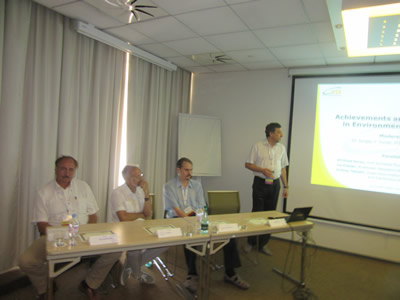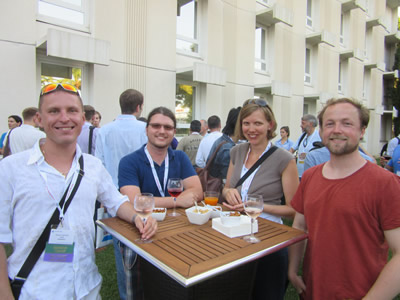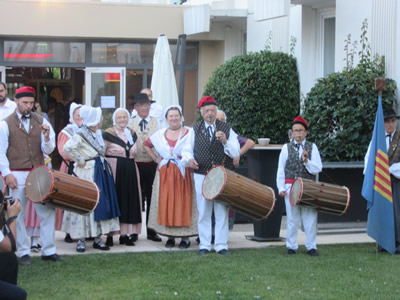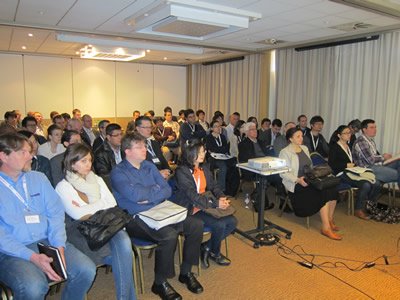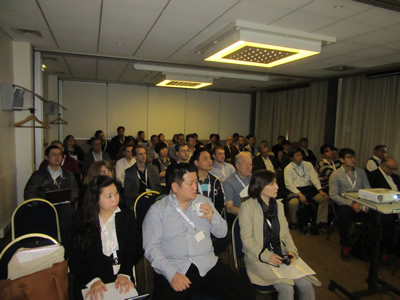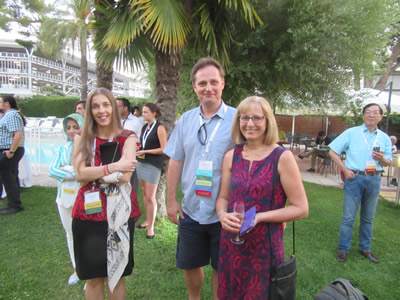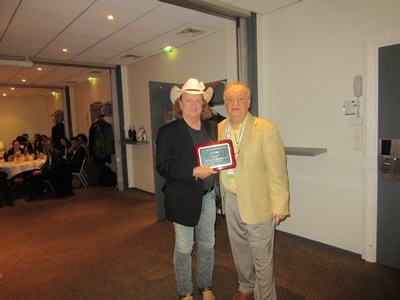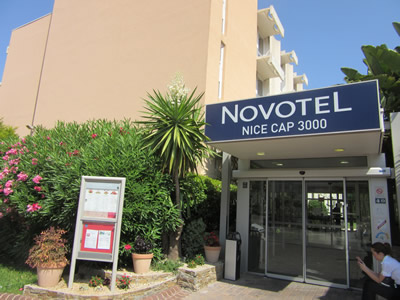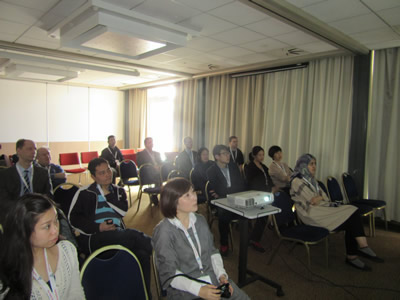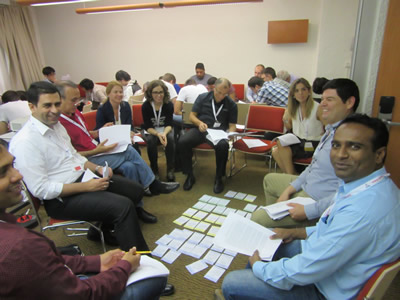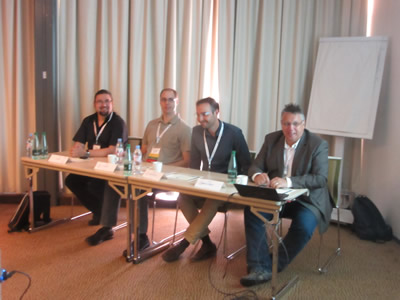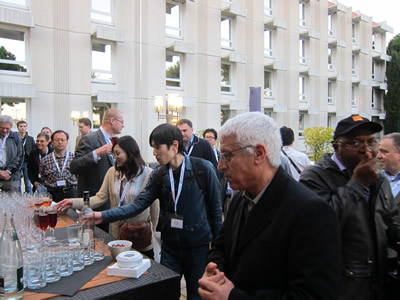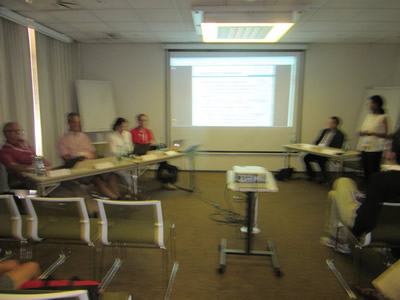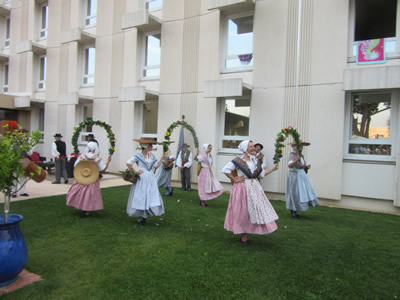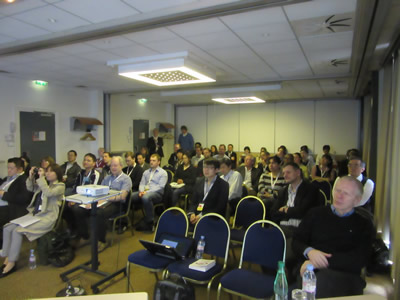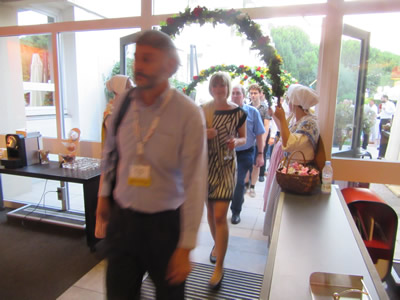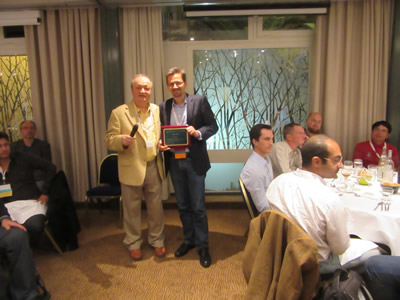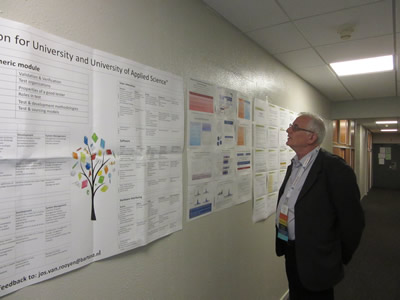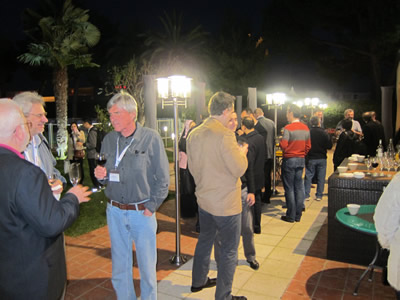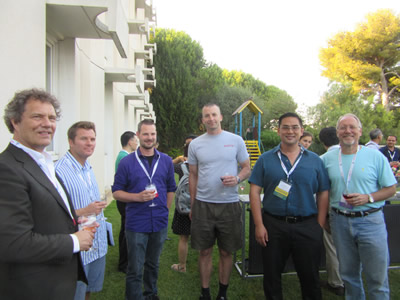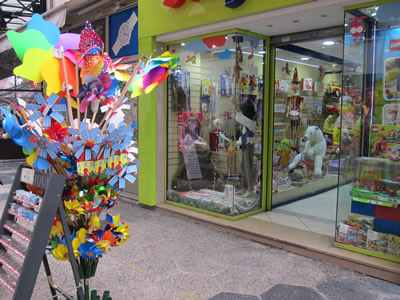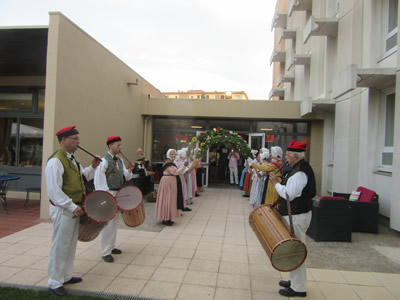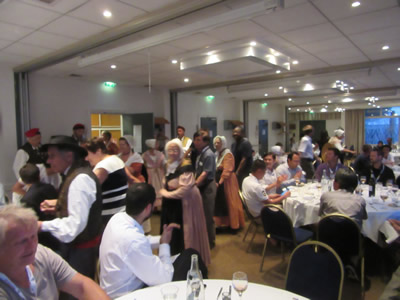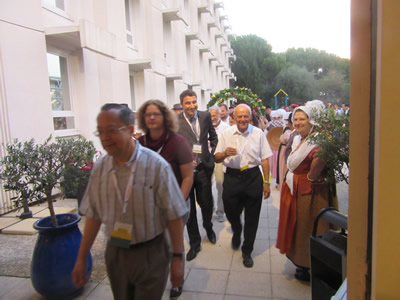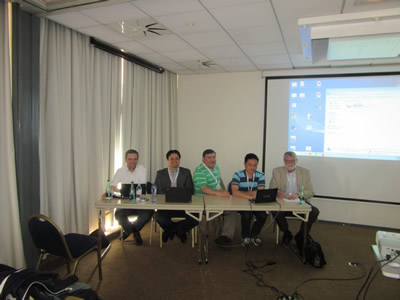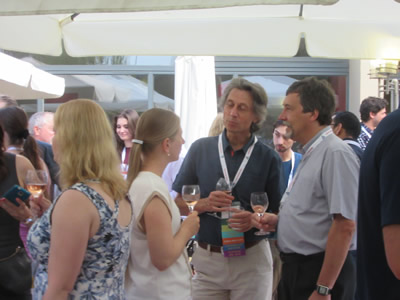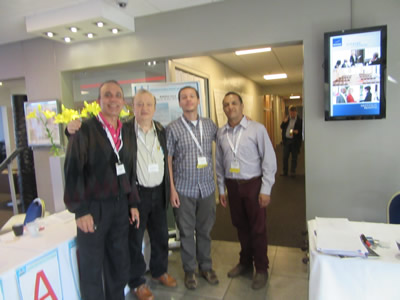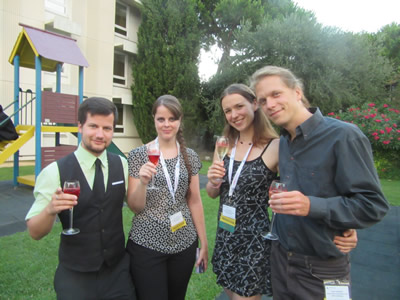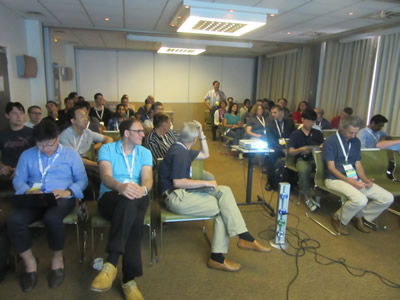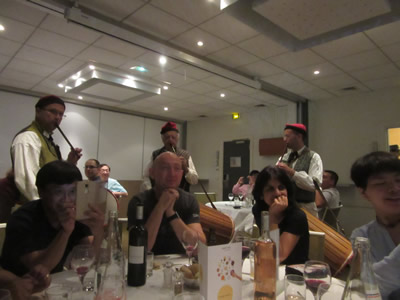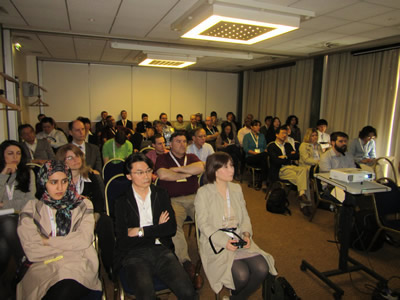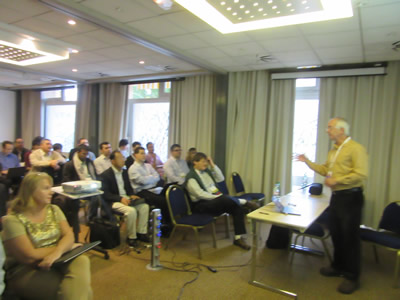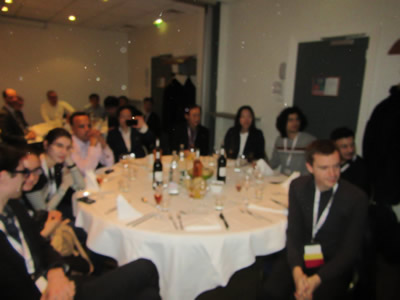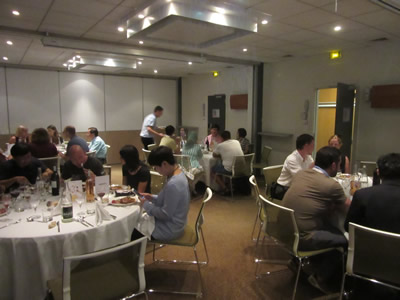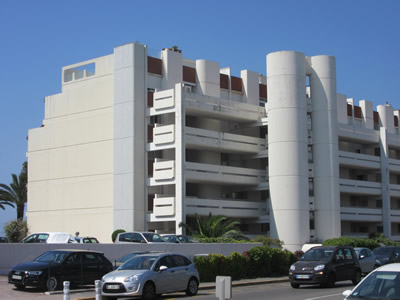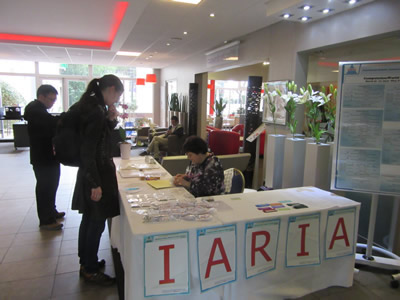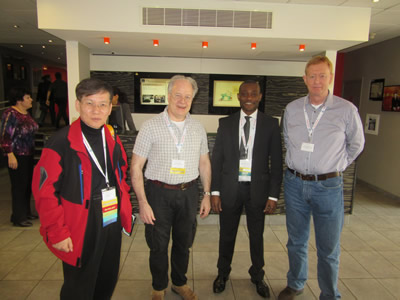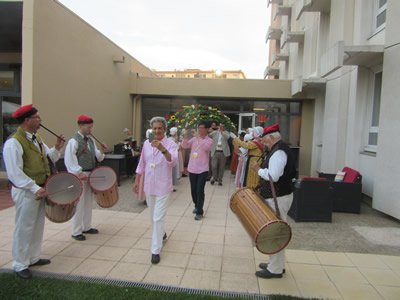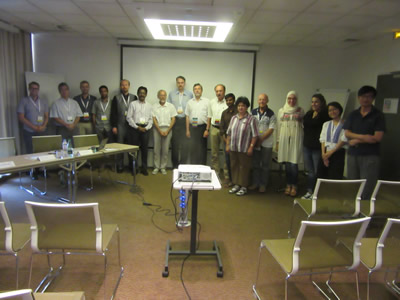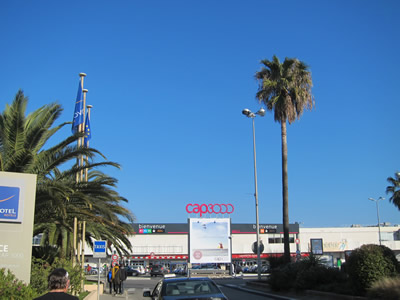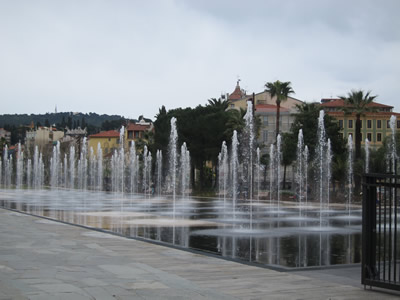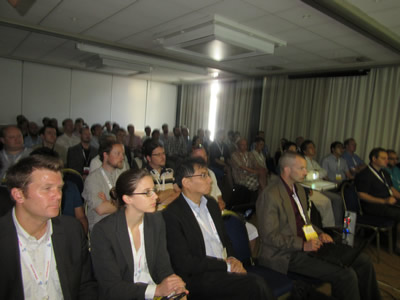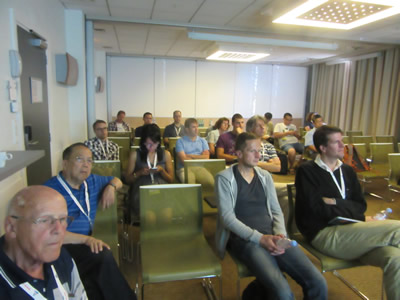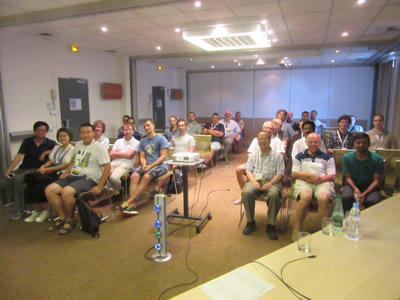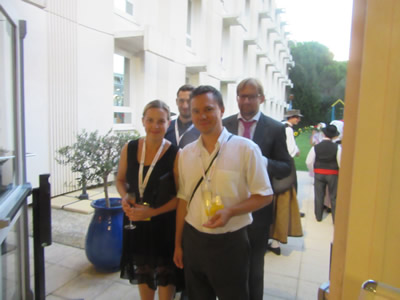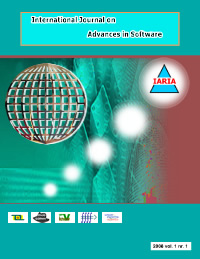SERVICE COMPUTATION 2023 - The Fifteenth International Conference on Advanced Service Computing
June 26, 2023 - June 30, 2023
SERVICE COMPUTATION 2023: Call for Papers
Due to the holiday season and requests from contributors the submission site remains open.
Onsite and Online Options: In order to accommodate a large number of situations, we are offering the option for either physical presence or virtual participation (pdf slides or pre-recorded videos).
The ubiquity and pervasiveness of services, as well as their capability to be context-aware with (self-) adaptive capacities posse challenging tasks for services orchestration, integration, and integration. Some services might require energy optimization, some might requires special QoS guarantee in a Web-environment, while other a certain level of trust. The advent of Web Services raised the issues of self-announcement, dynamic service composition, and third party recommenders. Society and business services rely more and more on a combination of ubiquitous and pervasive services under certain constraints and with particular environmental limitations that require dynamic computation of feasibility, deployment and exploitation.
SERVICE COMPUTATION 2023 , The Fourteenth International Conferences on Advanced Service Computing, the series of events targets service computation on different facets. It considers their ubiquity and pervasiveness, WEB services, and particular categories of day-to-day services, such as public, utility, entertainment and business.
SERVICE COMPUTATION 2023 is aimed at technical papers presenting research and practical results, industrial small- and large-scale systems, challenging applications, position papers addressing the pros and cons of specific topics, such as those being discussed in the standard fora or in industry consortia, survey papers addressing the key problems and solutions on any of the topics, short papers on work in progress, and panel proposals.
We solicit both academic, research, and industrial contributions. We welcome technical papers presenting research and practical results, position papers addressing the pros and cons of specific proposals, such as those being discussed in the standard fora or in industry consortia, survey papers addressing the key problems and solutions on any of the above topics short papers on work in progress, and panel proposals.
Industrial presentations are not subject to the format and content constraints of regular submissions. We expect short and long presentations that express industrial position and status.
Tutorials on specific related topics and panels on challenging areas are encouraged.
The topics suggested by the conference can be discussed in term of concepts, state of the art, research, standards, implementations, running experiments, applications, and industrial case studies. Authors are invited to submit complete unpublished papers, which are not under review in any other conference or journal in the following, but not limited to, topic areas.
All topics and submission formats are open to both research and industry contributions.
SERVICE COMPUTATION 2023 conference tracks:
Trends in service computation
Cloud services orchestration; Context-aware adaptation of service-based systems; Service computation in Smart Cities environments; Virtualized services in the networks ( core, at aggregation points, and at the edge); Cloud on-the-fly services; Microdata service centers at PoPs; Open-source infrastructure as a Service; Event-Driven Service-Oriented Architecture (ED-SOA or SOA 2.0); Service computation for smart vehicles; Service composition and orchestration in the Internet of Things (IoT) and Internet of Drones (IoD) systems; Service composition based on granularity computing; Visualization as a service; Enterprise scale service computation; Agent-based modelling as a service; Decentralized Web service composition; Service composition for collaboration support
Challenges in service computation
Continuous adaptation of Service-based systems for mobile environments; Concurrent negotiations for customized cloud service quality; Dynamic QoS monitoring in Service-oriented systems; Service replication process in distributed environments; Contract monitoring service; Dynamic testing; Prediction-as-a-Service; Scalable QoE prediction for service composition; Architectures for scale computing; Scalable and cost-efficient cloud storage; Strategies for Quality-aware service selection; Service contracts for risk prediction; Decentralized Web-service composition; Context-aware for Web-service clustering; Multi-tenant service composition; Collaborations through service composition; Reputation for Service composition in the Internet of Things (IoT)
Service innovation, evaluation and delivery
Service requirement validation; Service design; Service deployment; Service delivery; Service lifecycle; Service knowledge and service innovation; Model-driven service engineering; Knowledge-intensive services; Risk management in services management; Service testing and validation; Service consumption and delivery outcome; Quality of service; Quality of experience; Quality of service impact; Service audit metrics; Service innovation; Service bundling; Service research; Service composition; Collaborative services; Service business models; Service personalization; Security and trust in services
Ubiquitous and pervasive services
Foundations of ubiquitous and pervasive services, networks and applications; Specification, discovery, and matching of ubiquitous and pervasive services; Computing, orchestration and harmonization of ubiquitous and pervasive services; Technologies for modeling, designing, and testing ubiquitous and pervasive services; Service-oriented agent-based architectures, protocols and deployment environments; Integration and deployment of ubiquitous and pervasive services; Ubiquitous and pervasive services in peer-to-peer and overlay networks; Ubiquitous and pervasive services in mobile networks and sensor networks; Ubiquitous and pervasive services in unmanned air, underwater, and ground vehicle networks; Adaptive and self-adaptive ubiquitous and pervasive services; Context awareness, adaptation and management of ubiquitous and pervasive services; Security, trust and privacy management in ubiquitous and pervasive services; Semantics and ontology for ubiquitous and pervasive services; Web services and middleware support for ubiquitous and pervasive services; Energy management and harvesting for network with ubiquitous and pervasive systems; Case studies, lessons learned, experiments, simulations and trials for ubiquitous and pervasive services
WEB Services
Basics and formalisms on Web services; Web x.0 concepts in Web services evolution in this framework; Methodologies for specification, deployment and enhancements of Web services; Modeling and composition of Web services; Discovery, matching, and integration of Web services; SLA/QoS/QoE in Web services (privacy, security, performance, reliability, fault tolerance); Testing and validating Web services; Publishing, discovery, tracking, and selection of Web services; Web services lifecycle management; Semantics and Ontology in Web services; Cloud computing, service-as-a-software and on-demand Web services; Mobile and intermittent Web services; Web services-based services, applications and solutions; Web services standards and formalizations; Service-Oriented Architecture (SOA) infrastructure and middleware
Uncertain Web Services
Uncertainty-aware QoS; Uncertainty in Web service compositions; Discovering services under uncertainty; The uncertainty-enabled model web; Trust assessment for Web services under uncertainty; Uncertainty in chained Web services; Uncertainty propagation; Representing and simulating uncertain environmental variables; Quantifying, managing and communicating uncertainty; Uncertainty Markup Language (UncertML)
Skyline Services
Skyline services composition; QoS-based skyline selection; Dominant Web services; Spatial skyline computation; Selecting dynamic skyline services; Skyline metrics and criteria; Parallelization of skyline computation; Progressive skyline computation; Skyline optimization for Web service composition; Skyline applications (Peer-to-Peer, Demographic, etc.); Benchmarks for skyline computation
Society and business services
Public (mail, schools, banking, financial, personal, real estate, health, government, insurance, hospitals, transportation, library); Utility (broadcasting & cable TV, printing & publishing, energy, Internet, hotels, retail, waste management, security, rental); Entertainment (advertising, casinos & gaming, recreational, restaurant, travel); Business (communications, specialty, technology, planning, supply chain management, marketing, design, wholesale distribution); Business process management (business knowledge, business protocols, service level agreements, business licensing models, business financial models, and business advertising models
Service measurement
QoS metrics and indicators; data quality; validity of models; uncertainty analysis; SLA monitoring; measurement of business objectives; dynamics of monitoring; quantification of trust and trustworthiness; propagation of measurements; triangulation; expert judgments; aggregation of measurements
Empirical methods in system and service management
Empirical evaluations; method and model validation based on empirical trials; case studies; experiments; guidelines and best practices for structured empirical research; validity and reliability of empirical research; systematic reviews; metrics; measurements; expert judgments; case study design; reporting of empirical research
Deadlines:
Submission | Apr 07, 2023 |
Notification | May 05, 2023 |
Registration | May 19, 2023 |
Camera ready | May 26, 2023 |
Deadlines differ for special tracks. Please consult the conference home page for special tracks Call for Papers (if any).
INSTRUCTION FOR THE AUTHORS
Authors of selected papers will be invited to submit extended versions to one of the IARIA Journals.
Publisher: XPS (Xpert Publishing Services)
Archived: ThinkMindTM Digital Library (free access)
Prints available at Curran Associates, Inc.
How to submit to appropriate indexes.
Only .pdf or .doc files will be accepted for paper submission. All received submissions will be acknowledged via an automated system.
Contribution types
- regular papers [in the proceedings, digital library]
- short papers (work in progress) [in the proceedings, digital library]
- ideas: two pages [in the proceedings, digital library]
- extended abstracts: two pages [in the proceedings, digital library]
- posters: two pages [in the proceedings, digital library]
- posters: slide only [slide-deck posted on www.iaria.org]
- presentations: slide only [slide-deck posted on www.iaria.org]
- demos: two pages [posted on www.iaria.org]
FORMATS
Only .pdf or .doc files will be accepted for paper submission. All received submissions will be acknowledged via an automated system.
Final author manuscripts will be 8.5" x 11", not exceeding 6 pages; max 4 extra pages allowed at additional cost.
Helpful information for paper formatting for MS Word can be found here.
There is a community provided LaTeX template: the CTAN package iaria (with full IARIA formatting rules, including IARIA citation style, but for providing citation style it is tightly bound to pdflatex+biblatex+biber). In addition, there is also iaria-lite (not bound to pdflatex+biblatex+biber, but compatible with any TeX stack; thus, it cannot provide the IARIA citation formattings, but only the titlepage and content-related IARIA formatting rules). Based on the iaria package, there is a minimal working example as Overleaf template. When you are using the LaTeX templates, please still adhere to the additional editorial rules.
Slides-based contributions can use the corporate/university format and style.
Your paper should also comply with the additional editorial rules.
Once you receive the notification of contribution acceptance, you will be provided by the publisher an online author kit with all the steps an author needs to follow to submit the final version. The author kits URL will be included in the letter of acceptance.
We would recommend that you should not use too many extra pages, even if you can afford the extra fees. No more than 2 contributions per event are recommended, as each contribution must be separately registered and paid for. At least one author of each accepted paper must register to ensure that the paper will be included in the conference proceedings and in the digital library, or posted on the www.iaria.org (for slide-based contributions).
CONTRIBUTION TYPE
Regular Papers (up to 6-10 page article -6 pages covered the by regular registration; max 4 extra pages allowed at additional cost- ) (oral presentation)
These contributions could be academic or industrial research, survey, white, implementation-oriented, architecture-oriented, white papers, etc. They will be included in the proceedings, posted in the free-access ThinkMind digital library and sent for indexing. Please submit the contributions following the instructions for the regular submissions using the "Submit a Paper" button and selecting the appropriate contribution type. 12-14 presentation slides are suggested.
Short papers (work in progress) (up to 4 pages long) (oral presentation)
Work-in-progress contributions are welcome. These contributions represent partial achievements of longer-term projects. They could be academic or industrial research, survey, white, implementation-oriented, architecture-oriented, white papers, etc. Please submit the contributions following the instructions for the regular submissions using the "Submit a Paper" button and selecting the contribution type as work in progress. Contributors must follow the conference deadlines, describing early research and novel skeleton ideas in the areas of the conference topics. The work will be published in the conference proceedings, posted in the free-access ThinkMind digital library and sent for indexing. For more details, see the Work in Progress explanation page. 12-14 presentation slides are suggested.
Ideas contributions (2 pages long) (oral presentation)
This category is dedicated to new ideas in their very early stage. Idea contributions are expression of yet to be developed approaches, with pros/cons, not yet consolidated. Ideas contributions are intended for a debate and audience feedback. Please submit the contributions following the instructions for the regular submissions using the "Submit a Paper" button and selecting the contribution type as Idea. Contributors must follow the conference deadlines, describing early research and novel skeleton ideas in the areas of the conference topics. The work will be published in the conference proceedings, posted in the free-access ThinkMind digital library and sent for indexing. For more details, see the Ideas explanation page. 12-14 presentation slides are suggested.
Extended abstracts (2 pages long) (oral presentation)
Extended abstracts summarize a long potential publication with noticeable results. It is intended for sharing yet to be written, or further on intended for a journal publication. Please submit the contributions following the instructions for the regular submissions using the "Submit a Paper" button and selecting the contribution type as Extended abstract. Contributors must follow the conference deadlines, describing early research and novel skeleton ideas in the areas of the conference topics. The work will be published in the conference proceedings, posted in the free-access ThinkMind digital library and sent for indexing. 12-14 presentation slides are suggested.
Posters (paper-based, two pages long) (oral presentation)
Posters are intended for ongoing research projects, concrete realizations, or industrial applications/projects presentations. The poster may be presented during sessions reserved for posters, or mixed with presentation of articles of similar topic. A two-page paper summarizes a presentation intended to be a POSTER. This allows an author to summarize a series of results and expose them via a big number of figures, graphics and tables. Please submit the contributions following the instructions for the regular submissions using the "Submit a Paper" button and selecting the contribution type as Poster Two Pages. Contributors must follow the conference deadlines, describing early research and novel skeleton ideas in the areas of the conference topics. The work will be published in the conference proceedings, posted in the free-access ThinkMind digital library and sent for indexing. 8-10 presentation slides are suggested. Also a big Poster is suitable, used for live discussions with the attendees, in addition to the oral presentation.
Posters (slide-based, only) (oral presentation)
Posters are intended for ongoing research projects, concrete realizations, or industrial applications/projects presentations. The poster may be presented during sessions reserved for posters, or mixed with presentation of articles of similar topic. The slides must have comprehensive comments. This type of contribution only requires a 8-10 slide-deck. Please submit the contributions following the instructions for the regular submissions using the "Submit a Paper" button and selecting the contribution type as Poster (slide-only). The slide-deck will be posted, post-event, on www.iaria.org.
8-10 presentation slides are suggested. Also a big Poster is suitable, used for live discussions with the attendees, additionally to the oral presentation.
Presentations (slide-based, only) (oral presentation)
These contributions represent technical marketing/industrial/business/positioning presentations. This type of contribution only requires a 12-14 slide-deck. Please submit the contributions following the submission instructions by using the "Submit a Paper" button and selecting the contribution type as Presentation (slide-only). The slide-deck will be posted, post-event, on www.iaria.org.
12-14 presentation slides are suggested.
Demos (two pages) [posted on www.iaria.org]
Demos represent special contributions where a tool, an implementation of an application, or a freshly implemented system is presented in its alfa/beta version. It might also be intended for thsoe new application to gather the attendee opinion. A two-page summary for a demo is intended to be. It would be scheduled in special time spots, to ensure a maximum attendance from the participants. Please submit the contributions following the submission instructions by using the "Submit a Paper" button and selecting the contribution type as Demos. The Demos paper will be posted, post-event, on www.iaria.org.
Tutorial proposals
Tutorials provide overviews of current high interest topics. Proposals should be for 2-3 hour long. Proposals must contain the title, the summary of the content, and the biography of the presenter(s). The tutorial slide decks will be posted on the IARIA site.
Please send your proposals to tutorial proposal
Panel proposals
The organizers encourage scientists and industry leaders to organize dedicated panels dealing with controversial and challenging topics and paradigms. Panel moderators are asked to identify their guests and manage that their appropriate talk supports timely reach our deadlines. Moderators must specifically submit an official proposal, indicating their background, panelist names, their affiliation, the topic of the panel, as well as short biographies. The panel slide deck will be posted on the IARIA site.
Please send your proposals to panel proposal


